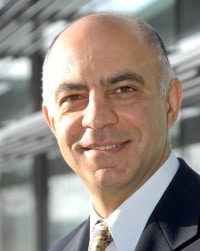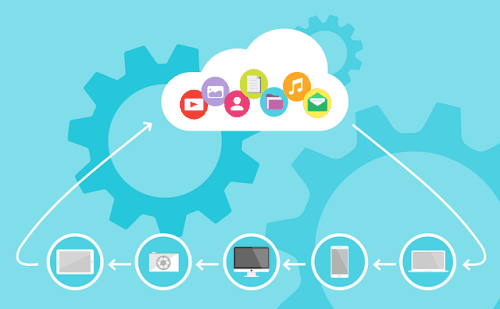Microsoft, widely considered a hyperscaler for LoRaWAN, has joined the LoRA Alliance with Tony Shakib, general manager and partner of Azure IoT Engineering at Microsoft, taking a seat on the association’s board of directors.

“Microsoft joins an impressive roster of industry leaders who back the LoRaWAN standard and are committed to its development and the expansion of our ecosystem. Tony’s insight and guidance as an Alliance board director will strengthen and accelerate LoRaWAN end-to-end solutions and zero-touch deployments,” said Donna Moore, CEO and chairwoman of the LoRa Alliance, adding that Shakib’s addition to the alliance’s leadership will further accelerate market adoption of the LoRaWan standard.
Established in 2015, the LoRa Alliance is the global association of companies backing the open LoRaWAN standard for the Internet of Things (IoT) low-power wide-area networks (LPWANs). Its members collaborate closely and share expertise to develop and promote the LoRaWAN standard, which is the de facto global standard for secure, carrier-grade IoT LPWAN connectivity.
LoRaWAN has the technical flexibility to address a broad range of IoT applications, both static and mobile, and a robust LoRaWAN Certification program to guarantee that devices perform as specified. Deployed by 150 major mobile network operators globally, LoRaWAN connectivity is available in more than 160 countries to date.
Microsoft has already worked with a number of LoRa Alliance members to deploy LoRaWAN solutions globally on the Azure IoT infrastructure.
“Microsoft has invested billions of dollars to enable customers to build digital twins of the physical world,” said Shakib. “The digital twin enables customers to analyse, predict and control environments across industries, whether monitoring production lines, managing worker safety, optimising supply chains or delighting retail customers. A critical link in these digital transformations is the connectivity fabric, and LoRaWAN has unique capabilities to help fulfil that vision. We are excited to join the LoRa Alliance and deepen our collaboration with members to help our customers succeed in IoT.”
To date, some of the key projects that Microsoft has done around LoRaWAN include:
- Beyond Eyes, a brand created by Heijmans N.V., a major Dutch construction-services business, deployed 20,000 LoRaWAN-connected IoT Smart Building sensors for Heijmans’ clients in the Netherlands, based on private LoRaWAN network management provided by Actility’s ThingPark Enterprise IoT platform,and seamless integration with Microsoft IoT Hub and IoT Central, at scale. Beyond Eyes uses wireless sensors from CLICKEY to collect anonymous data on a building’s utilization, occupation, usage and indoor environment. The solution, implemented across a wide variety of building types, provides insight into the performance and use of a building, ultimately leading to process, staffing and building improvements to enable cost savings, creating a sustainable work environment. “With native integration to Azure IoT, as well as our ever increasing collection of drivers, small and large organizations now have the perfect end-to-end stack for massive IoT projects,” said Olivier Hersent, CEO at Actility.
- MachineQ, a Comcast Company, harnesses the infrastructure and scale of Azure Cloud Services to deliver its all-in-one IoT connectivity platform for enterprises needing to build and deploy LoRaWAN solutions at scale. For Microsoft customers and partners, the MachineQ platform offers native tooling and streamlined delivery of integrated data, making it easy to visualize and analyse sensor data in Azure IoT. Among its most significant and largest customer deployments, MachineQ partnered with CoreKinect to develop an outdoor asset tracking solution to streamline inventory management, reduce operational costs, and improve customer experience. The deployment included over 325,000 LoRaWAN devices connecting to just a couple hundred MachineQ LoRaWAN gateways installed at more than 80 sites across the U.S. and Canada.
- Microshare EverSmart on Azure/LoRaWAN delivers over 20 IoT Sensing-as-a-Service solutions for Smart Spaces to global customers in any industry, especially corporate office, manufacturing and health care. With data stream endpoints to IoT Hub, Power BI, and IoT Central, EverSmart customers can take full advantage of Azure Cloud Services including Stream Analytics, Databricks and Digital Twins to gain intelligence and make insightful decisions that improve their business and enhance the experience of the people using the space. Because of the ease of deploying LoRaWAN on Azure, the Royal Hospital for Neuro-disability in London quickly installed a solution portfolio that includes asset zoning and occupancy as well as monitoring for environment, CO2, fridge and water temperature to get a consolidated view of conditions and equipment locations in their space. “Thanks to BT and Microshare, we are now able to automate many tasks that would have previously taken considerable time or effort to carry out,” said Toby Roberts, CIO of the Royal Hospital for Neuro-disability. “This technology has been extremely useful during the current pandemic, as it has allowed our staff to perform more efficiently under heightened pressures.”
- “Sodexo, through its global partnership with myDevices, provides its Vital Spaces services to a wide range of customers that require occupancy sensors, automated people counting, electric submetering, temperature monitoring, asset condition monitoring, air quality monitoring, asset tracking and many other sensor solutions,” said William Keys, MSM, director of FM technology development and innovation, Sodexo. “Through a single integration with myDevices’ platform, Sodexo can now easily source, procure and deploy pre-provisioned LoRaWAN hardware from hundreds of manufacturers, alongside its own in-house occupancy solutions provided by WX Solutions. All of the sensor data is then consolidated, normalized and transformed into our back-end platforms to gather insights using Microsoft’s Power BI and Time Series Insights.” “Our global partners, like Sodexo, require the most secure and scalable systems, and that is why myDevices’ platform uses Microsoft Azure DPS and IoT Hub to secure, scale and manage these deployments around the world,” said Kevin Bromber, CEO and founder, myDevices.
- Webee, a company that develops IIoT (Industrial Internet of Things) and AI solutions, has deployed its No-Code End-to-End Solution Builder, running on Microsoft Azure, and leveraging Semtech LoRa devices and the LoRaWAN standard, in a variety of industries including agriculture to industrial IoT to conserve natural resources and improve sustainability efforts. Large commercial farms are able to implement LoRaWAN powered soil moisture sensors enabling new visibility and valuable learnings about the effects of light, temperature, Co2levels, humidity, PH, EC, water usage, as well as an irrigation controller to manage the water valves intelligently.
- The Things Industries’ customers use LoRaWAN through private networks in smart buildings, smart agriculture and food tech. Morgan Sindall executes preventive maintenance of real estate through LoRaWAN temperature and humidity sensors, supported by The Things Industries’ network server, The Things Stack. “Sensors on LoRaWAN technology have a long battery life and open standard. We use Microsoft’s Digital Transformation platform to route to applications like Microsoft Dynamics Field Services and the Power Platform,” said Phil Copperwheat, information systems director, Morgan Sindall.The Things Stack Azure IoT Hub integration enables exchange of traffic between the LoRaWAN network server and the Azure IoT Hub, which can be used for managing and monitoring devices and gateways, end-to-end encryption and leverage Device Repository, allowing high-level communication designs. “Through the low-code integration, LoRaWAN platform from The Things Industries and Microsoft’s Digital Transformation platform open endless LoRaWAN use cases, and our customers are already putting that to use across many continents,” said Wienke Giezeman, CEO, The Things Industries.



